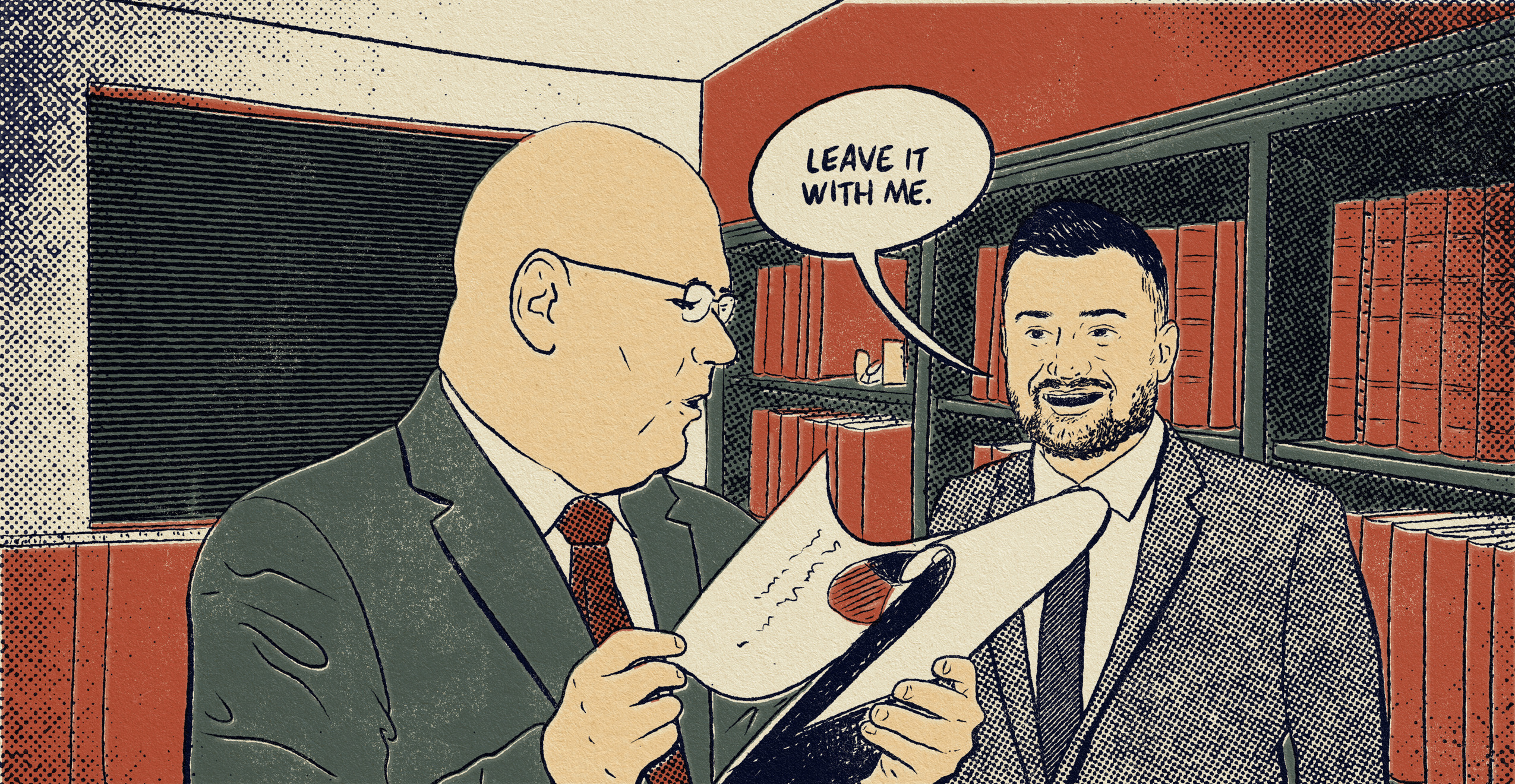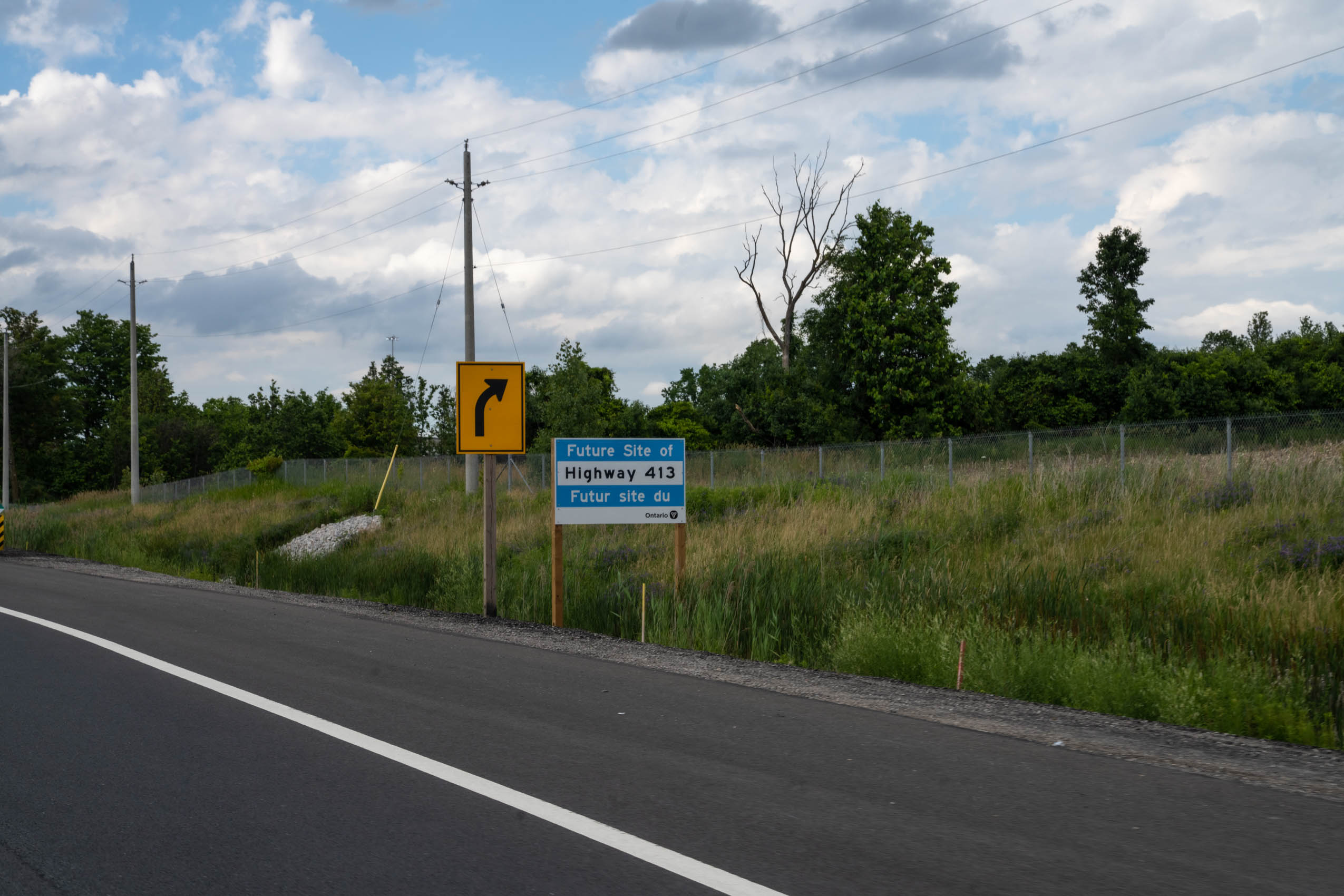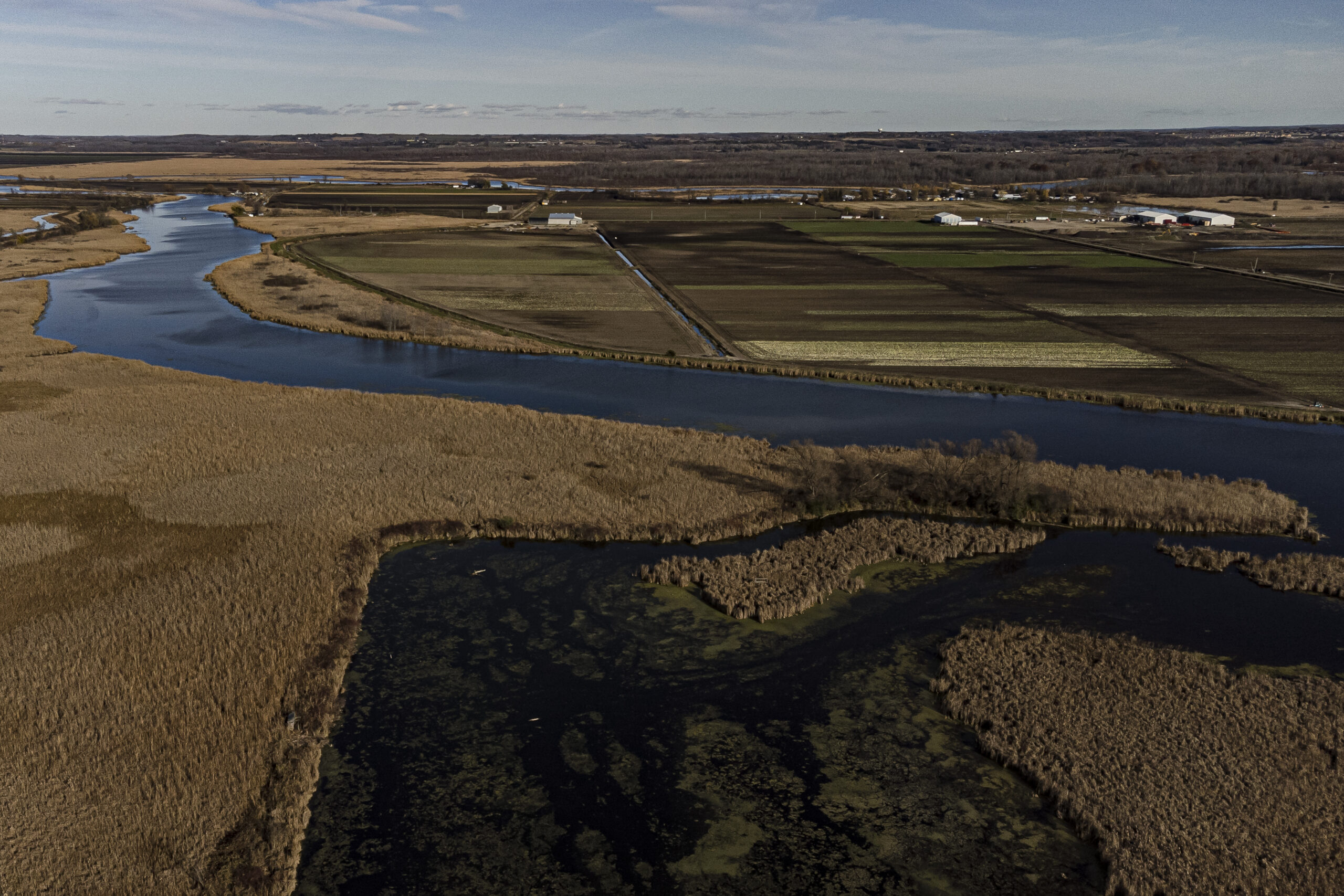
5 things to know about Winnipeg’s big sewage problem
115 billion litres, 70 years to fix, $5.5 billion in lawsuits
Get the inside scoop on The Narwhal’s environment and climate reporting by signing up for our free newsletter.
In August 2020 a then-Ontario government staffer emailed his colleagues to say Premier Doug Ford was asking about rerouting a proposed highway.
Ryan Amato would later be central to the Greenbelt scandal and leave his job in the midst of it.
Back in 2020, though, he was the director of stakeholder relations for then-transportation minister Caroline Mulroney — and talking with the premier about the planned Bradford Bypass.
“He wants to know the cost of moving it further north,” Amato wrote. “He is of the view the land is cheaper the further north we go.”
Amato’s message to his colleagues about the meeting, which he wrote had happened earlier that day, is captured in a set of documents obtained through freedom of information legislation. The records contain no other documentation of this meeting, or the alleged suggestion from the premier. There are no emails to set it up, calendar appointments, memos or notes. And although Amato asked his colleagues to brief him days later on the cost of changing the route of the Bradford Bypass, the documents show nothing in the way of follow-up.
In general, two separate freedom of information requests turned up scant documentation of Amato’s role during critical moments of planning for the Bradford Bypass and Highway 413 — despite the fact he appeared to be integral enough for the premier to give him suggestions about one of them.
That was two years before Amato has said he was in the room with Ford, talking about opening the Greenbelt for housing development, according to a report from the province’s integrity commissioner. Ford and others who were in the room deny discussing changes to the protected area in that meeting.
But following this, Amato spearheaded the province’s work to change the boundaries of the Greenbelt, according to twin reports from the province’s auditor general and integrity commissioner. They allege he served as a conduit between the government and powerful developers — a process the watchdogs have said was marked by missing documentation.
In the integrity commissioner’s report on the scandal, Amato is quoted as saying protocols implemented by a senior bureaucrat ensured “not a lot of document creation.” The newly released records about highway planning raise questions about whether allegations of missing documentation might extend to other priority projects of the Ford government.
Highway 413 and the Bradford Bypass are both slated to be built to connect Toronto’s outer suburbs. Their proposed routes run through Ontario’s Greenbelt, protected wetlands, prime farmland and endangered species habitat.
The Ford government has argued both are needed to ease traffic on the Greater Toronto Area’s congested roads, despite decades of evidence indicating new highways attract more drivers and make the problem worse in the long run. The projects have repeatedly come under fire over their environmental impact — and because of the well-connected developers poised to benefit from them.
Amato was in Mulroney’s office from 2019 to spring 2022, where he worked on both highway projects before he took the job that eventually placed him at the centre of the Greenbelt scandal. He moved from there to become chief of staff to former housing minister Steve Clark, which is when reports by the integrity commissioner and auditor general allege he was at the helm of a team that gave preferential treatment to a small group of well-connected land developers who could have profited from the Greenbelt cuts by at least $8 billion. At least two of those developers also owned land close to the proposed highways, and had met Amato during his time at the Transportation Ministry.

The watchdogs also uncovered concerns about missing and deleted government records.
Both Amato and Clark resigned amid the fallout, which ended with Ford undoing the Greenbelt changes. In a resignation letter obtained by multiple news outlets, Amato wrote his role in the Greenbelt changes has been “unfairly depicted.” He didn’t respond to questions for this story.
The two sets of freedom-of-information records of Amato’s involvement in the highway projects cover five and 14 months, respectively, but are centred on big moments for each highway project. The Ministry of Transportation and the premier’s office didn’t answer questions about the documents, and whether they fairly represent Amato’s work during those periods.
The documents come as the Ford government is again seeking to fast-track its work on both highways. The Progressive Conservatives have already started early construction work on the Bradford Bypass. Transportation Minister Prabmeet Sarkaria has said he intends to do the same with Highway 413 as soon as next year, though federal Environment Minister Steven Guilbeault is currently considering a request to review the project that could delay or block construction.

The records of Amato’s work on the highway projects were given to The Narwhal by people who requested them from the Ministry of Transportation via freedom of information legislation after Amato’s role in the Greenbelt scandal became public.
The scopes of those freedom of information requests wouldn’t have captured every single piece of documentation of Amato’s work on the highway projects — for example, they wouldn’t have included his contact with landowners along the routes of Highway 413 and the Bradford Bypass, a key portion of his job.
Even within the limited scopes of each request, however, the number of records found by the Ministry of Transportation does appear unusually low. A director of stakeholder relations is meant to be communicating with senior political staff and ministers and weighing in on strategy, among other things, according to three online postings for similar Ontario government jobs. Those tasks typically leave a paper trail.
One information request was filed by Vaughan City Coun. Marilyn Iafrate, a longtime critic of Highway 413: it asked the ministry to search Amato’s communications with his colleagues about the 413 from July 1, 2019, to Aug. 31, 2020, a span of 14 months. During that time the Ministry of Transportation was putting a heavy focus on Highway 413 — it tweaked the route, formally resumed a stalled environmental assessment and started seeking feedback from the public on the project.
Iafrate’s request turned up just six records. Two were stakeholder contact lists, while the remaining four were short email chains spanning a few days or less. Some were about stakeholder meetings, while others contained a map of Highway 413 or details of public information sessions.



The councillor told The Narwhal she was “shocked” at how little documentation there was.
“As an elected official at the municipal level, I get hundreds of emails a day,” Iafrate said in an email to The Narwhal. “Seeing the lack of emails for a government employee definitely makes me say that this doesn’t pass the smell test.”
A second request was filed by Margaret Prophet, the executive director of the Simcoe County Greenbelt Coalition, a grassroots environmental group that opposes the Bradford Bypass. It asked for records of Amato’s work on the bypass, among them meeting notes, reports, memos, calendar appointments and emails with staff in Mulroney and Ford’s offices. It covers a span of five months, from April 1, 2020, to Aug. 31, 2020. During that time, the Ministry of Transportation began seeking public feedback on a plan to exempt the Bradford Bypass from undergoing a full environmental assessment.
Prophet’s request turned up nine records. None contained calendar appointments. For the most part, they were also brief email chains with colleagues. Two revolved around stakeholder meetings — one Prophet attended, one involving a municipal government. Others were emails between Amato and the premier’s office, or his colleagues at the ministry.
Ford’s request to reroute the Bradford Bypass, as Amato outlined in an email to his colleagues, doesn’t appear to have come to fruition, but the documents don’t contain any further discussion of why not — despite Amato asking the others to include him and another staffer on a briefing later that week. Ford’s office, Mulroney’s office and the Ministry of Transportation didn’t answer questions about whether the conversation between Ford and Amato happened as depicted.

Prophet said the results of her freedom of information request made her question whether issues raised about deleted or missing records during the Greenbelt scandal might have actually been happening for years.
“I’m looking at evidence that should be there and it’s not there,” she said in a phone interview. “That leads me to draw questions of how transparent this is.”
“I would question the integrity of the decisions being made because they’re intentionally not being made in a way that could involve public scrutiny or public input.”
Amato and the Ministry of Transportation didn’t answer questions from The Narwhal about why the freedom of information requests would have turned up so few records, and how involved the former staffer was with work on Highway 413 and the Bradford Bypass.
The Office of Information and Privacy Commissioner Patricia Kosseim — which handles appeals related to freedom of information requests and oversees the provincial government’s record-keeping — said it isn’t hearing any appeals related to record retention problems at the Ministry of Transportation.
Kosseim’s office is, however, hearing several appeals for freedom of information requests about the Greenbelt scandal. The commissioner has said she’ll publish a report with her findings once all of those cases are concluded, but it’s not clear when that might be.


The absence of detailed records of Amato’s work on the highway projects means the public is unable to see what one key staffer was doing and how his work might have informed decisions — a theme that was among the reasons the Greenbelt changes became a major scandal.
In their reports on the Greenbelt changes, both the province’s auditor general and the integrity commissioner noted some key records appeared to be deleted or missing.
The auditor general alleged political staff within the Ford government had been deleting emails and using personal accounts to discuss changes to the Greenbelt with lobbyists, a practice that goes against government guidelines. The Narwhal has reported on one case where Amato used a personal email to communicate with a development lobbyist, though he forwarded the exchange to his government account.
The province has asked Amato twice to hand over records about the Greenbelt changes from his personal email account, but the former staffer has refused, according to the Toronto Star. The Ministry of Municipal Affairs and Housing told the Star it has no legal mechanism to force Amato to comply.
Iafrate’s freedom of information request also asked for records from Amato’s personal email. In response, the Ministry of Transportation said it was “unable” to do so. (Emails related to government work are still subject to freedom of information law even if they were sent from personal accounts.)

As the government worked on the Greenbelt changes, many discussions happened over the phone or through documents delivered via USB drive, the province’s integrity commissioner found. The commissioner wrote he “was also advised that phones had been replaced and text messages had been lost at that time.”
Government staff working on the Greenbelt changes also used code words like “G*” and “special project.” The government has not answered questions about the use of code words, which could effectively conceal documents from anyone trying to find them by searching keywords such as “Greenbelt.”
It’s illegal in Ontario to alter, conceal or destroy a record with the intention of shielding it from freedom of information. Code words or other measures that “thwart the identification of records for transparency and accountability” are also not allowed under the law. But proving intent is difficult, and officials who destroy records in Canada rarely if ever face consequences for it, the Globe and Mail reported in 2023. In Ontario, the maximum penalty for those who are convicted of such an offence is $5,000.
The opposition Ontario NDP have questioned the Ford government’s motives.
“What this looks like is intent to conceal,” party leader Marit Stiles said in March. “People covering their tracks because they know what they’re doing is wrong.”
Amato and the Ford government have not answered questions from The Narwhal about internal records retention practices.
In the fallout of the Greenbelt scandal, the auditor general recommended the Progressive Conservatives clean up practices around records retention. The government agreed and sent a memo instructing staff to “ensure adherence to records retention requirements, including the documentation of materials received by third parties and only use government emails for work related matters.” The scandal also prompted rounds of ethics training for government staff.
Get the inside scoop on The Narwhal’s environment and climate reporting by signing up for our free newsletter. On a warm September evening nearly 15...
Continue reading
115 billion litres, 70 years to fix, $5.5 billion in lawsuits

Climate change, geopolitics and business opportunities power a blue economy

10 billion litres of sewage are dumped into Winnipeg’s lakes and rivers each year. Some...
